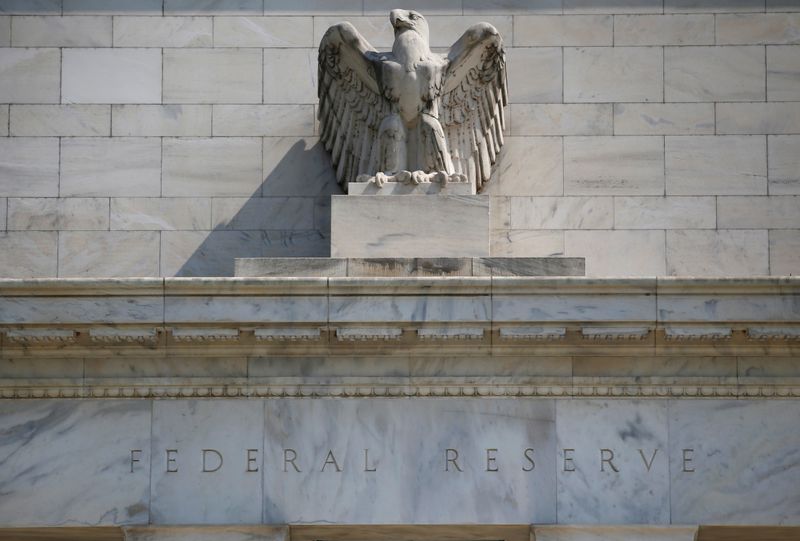By Tom Westbrook
SINGAPORE (Reuters) - When the U.S. Federal Reserve cut interest rates to near zero on Sunday, the dollar fell, since the move blew away the yield on owning dollars and with it much of their attraction.
Yet few are willing to bet on a prolonged decline. Pandemic fears are roiling markets, driving a scramble for both safety and funding in the world's reserve currency.
Analysts are already discounting the dollar's slide on Monday as modest and maybe temporary, given the scale of the Fed's emergency move. They are also drawing a distinction between the unwinding of the dollar's yield and what happens next.
"We had this very, very bold move by the Federal Reserve," said Paul Mackel, head of emerging markets FX research at HSBC in Hong Kong. "(But) if you look at the reaction of markets, it's very mixed if not underwhelming. And in the currency market specifically, the dollar funding still remains quite tight."
He said the dollar was drawing support for various reasons, from investors seeking safety from wild trading in other asset classes to businesses that want to be cash-rich in uncertain times.
"Whenever you have a big enough financial shock, the scramble for liquidity and the reserve currency in the world, which is the dollar, typically intensifies," Mackel said.
(Graphic: The U.S. dollar and the cross-currency basis, https://fingfx.thomsonreuters.com/gfx/mkt/13/3477/3438/Pasted%20Image.jpg)
Despite the Fed's 100-basis-point cut and aggressive liquidity measures, the cost of borrowing dollars internationally - reflected in cross currency swaps - has kept rising.
Japanese banks on Monday were paying 10 times the average price to swap yen for one-month dollars
The dollar has historically gained in spot markets whenever there is an offshore funding squeeze, since it is almost always against a backdrop of global uncertainty and market volatility that tends to hurt the balance sheets of non-dollar economies.
This time, the dollar's yields are also higher than those in the euro zone or Japan.
In the spot market, the euro was recently unchanged against the dollar (EUR=) on Monday and the yen
But both stayed below recent peaks and the dollar surged against commodity and emerging-market currencies, adding to already massive gains as pandemic headlines flowed across screens.
The dollar has gained around 10% against the New Zealand dollar
Although positioning data <0#NETUSDFX=> has the value of long dollar positions tumbling with the unwinding of the euro/dollar carry trade, the market remains long dollars.
Nomura, Japan's biggest brokerage and investment bank, said on Monday it expects the dollar to extend already big gains against the Korean won and Thai baht, and added to a bet the Singapore dollar will fall against the dollar.
Westpac FX analyst Sean Callow said as long as investors' worries about the virus remains, demand for dollars should stay strong.
"It's hard to see much upside for the Aussie, kiwi or Canadian dollar, given what's happened with commodities and energy prices in general and sensitivity to risk appetite," he said.

"If you're having liquidity problems on a currency like the Aussie, if there's concern there, then it's just multiplied for any emerging-market currency ... I don't think too many people have the luxury of just standing by."